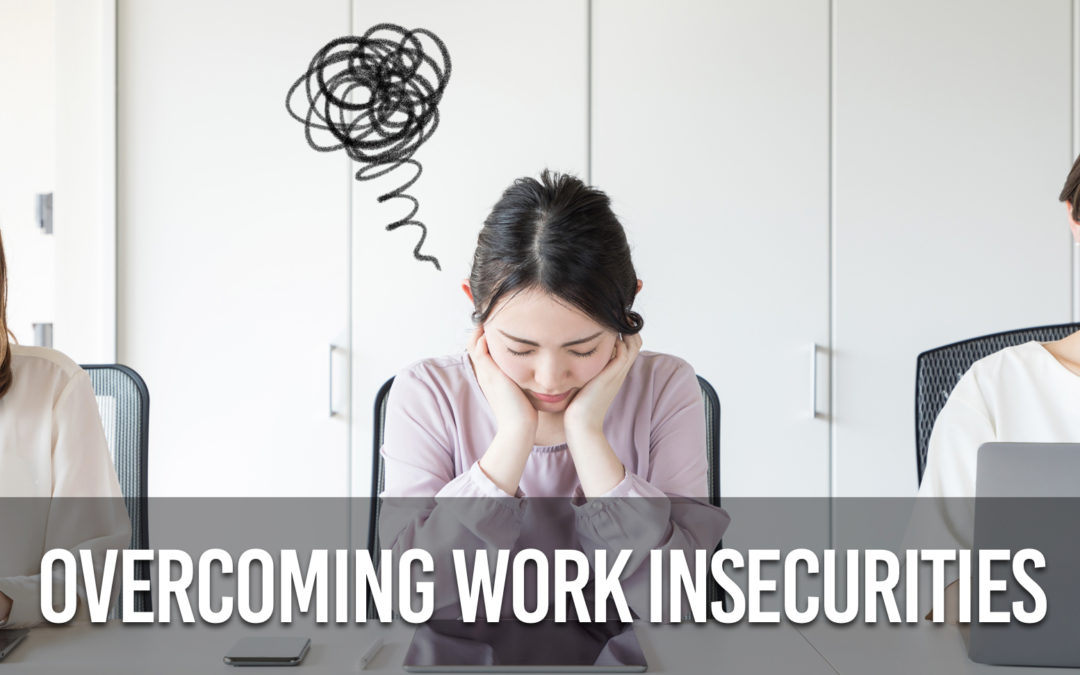No one feels comfortable about talking about our insecurities. It’s a type of vulnerability that requires us to admit where we feel unqualified. It’s hard enough to navigate in our personal lives, but when we bring insecurities into the workplace, we’re questioning our ability to do the job we were hired for — and do it well. Harvard Business Review describes work insecurities as, “The nagging worry that we are not quite as smart, informed, or competent as we ought to be, or as others might think. The fear that we are not good enough, or simply not enough. The second thoughts about our ideas, observations, and even about our feelings. The constant concern about being judged.”
Insecurity makes us volatile leaders. Constantly worried about performance, receiving praise, and other tangible reminders that we’re doing a good job. Don’t get me wrong, all of those things are important to consider in any workplace … but when they become our only source of worth in our jobs, it’s time to put your insecurities in check.
Insecurity makes us volatile leaders. Click To TweetInsecurities also make it harder to do our jobs well. When we’re so concerned with our insecurities, it doesn’t leave a lot of room to do the job you’re probably more than capable of doing. It’s a distraction, one that isn’t productive or conducive for growth.
I think we can all agree that insecurities shouldn’t have a large piece of our leadership pie. So how do you overcome insecurities at work?
“Insecurities are made, not born,” says Svenja Weber and Gianpiero Petriglieri in their study on insecurity in the workplace. Their research suggests it’s not just the insecure person’s job to beat insecurity — it’s also the job of those in charge — to create an environment where insecurities can no longer thrive.
For the insecure employee:
-
Try not to attach every single action to every single consequence.
Think objectively when things don’t go your way or pan out the way you thought they would. Think of all the other possible reasons things could have gone wrong instead of immediately blaming yourself. It’s important to accept responsibility for your actions, but not every little thing is within your control.
For the boss of the insecure employee:
-
Allow room for mistakes and growing opportunities.
If you’ve given people room to fear your reaction to their failures, you’re reinforcing a cycle of insecurity that leads to an unproductive work environment. Ask yourself, “Is this really the end of the world?” And then, “How can we work together to make sure this doesn’t happen again?”
“We all have some experience of relationships in which we have freedom, can speak our minds, can be vulnerable, can be seen, all without much fear of jeopardizing the relationship itself. We might even have experience of relationships that make us feel truer to ourselves than we could be alone. What if those relationships were not an exception at work, but the norm? You guessed the answer: Insecurity would be a momentary state, not a chronic condition. It might afflict all of us at times, but it would not define some of us for good. Bringing our full selves to work, our strengths and vulnerabilities, ideas and questions, would be neither an achievement nor a privilege. It would be a gift that we receive and give in turn.” – Svenja Weber, Gianpiero Petriglieri
LIKE THIS POST?
Sign up to receive my posts via email and get a FREE copy of The Five Enemies of Growth!


